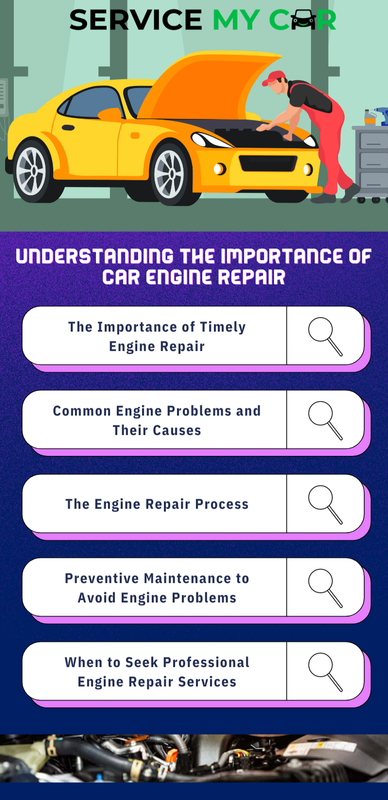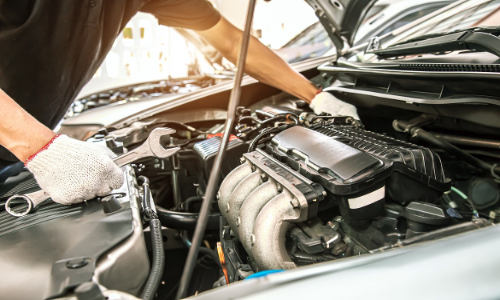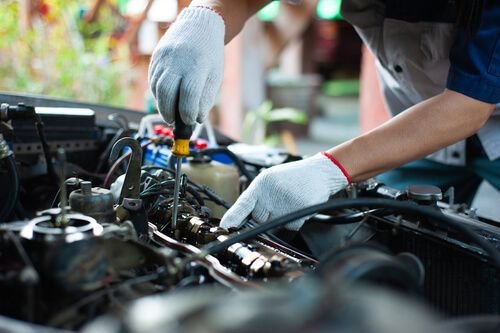Your car's engine is its beating heart, responsible for delivering the power needed to keep your vehicle running smoothly. However, like any mechanical component, engines are susceptible to wear and tear over time. Understanding the intricacies of car engine repair is essential for maintaining your vehicle's performance, longevity, and overall safety.
In this comprehensive guide, we will explore the key aspects of car engine repair, helping you recognize when repairs are necessary, what they entail, and how to ensure your engine remains in top condition. Whether you're a seasoned car owner or new to vehicle maintenance, this blog will provide valuable insights into keeping your engine in peak condition. And when it comes to expert car engine repair services, you can always trust the professionals at Service My Car, your go-to destination for all types of car repairs and services.
The Importance of Timely Engine Repair
The engine is a complex and vital component of your car, comprising numerous parts that work together to generate power. Over time, these components can wear down due to factors such as age, mileage, and driving conditions. Neglecting engine issues can lead to a cascade of problems, resulting in costly repairs or even engine failure. Timely engine repair is crucial to avoid these scenarios and to keep your car running efficiently.
One of the most common signs that your engine needs attention is the appearance of warning lights on your dashboard. The "check engine" light, in particular, is a clear indicator that something is amiss. Ignoring this warning can lead to more severe issues, making it essential to address the problem promptly. Additionally, if you notice unusual noises such as knocking or ticking coming from the engine, it's a sign that something is wrong and requires immediate attention. These sounds can indicate problems with components like the valves, pistons, or bearings, all of which are critical to engine function.
Common Engine Problems and Their Causes
Several common engine problems can arise over time, each with its own set of causes. One frequent issue is overheating, which can be caused by a malfunctioning cooling system, low coolant levels, or a faulty thermostat. Overheating can lead to significant engine damage if not addressed promptly, so it's crucial to keep an eye on your temperature gauge and ensure your cooling system is in good working order.
Another prevalent engine problem is oil leakage, which can occur due to worn-out seals, gaskets, or a damaged oil pan. Oil is essential for lubricating the engine's moving parts and preventing friction, so any loss of oil can lead to increased wear and tear. If you notice oil spots under your car or a drop in oil levels, it's vital to have your engine inspected and repaired as soon as possible.
Engine misfires are another common issue, often caused by problems with the ignition system, fuel injectors, or spark plugs. A misfiring engine can result in poor performance, reduced fuel efficiency, and increased emissions. If you experience a rough idle, hesitation during acceleration, or a noticeable decrease in power, it's likely that your engine is misfiring and needs professional attention.
The Engine Repair Process
When it comes to engine repair, the process typically begins with a thorough diagnostic assessment. Modern vehicles are equipped with sophisticated onboard computers that can store error codes related to engine performance. A qualified mechanic at Service My Car will use diagnostic tools to retrieve these codes and pinpoint the exact issue. This step is crucial for identifying the root cause of the problem and determining the appropriate repair strategy.
Once the issue has been identified, the repair process can begin. Depending on the nature of the problem, engine repairs can range from relatively simple tasks, such as replacing a faulty sensor or repairing a leak, to more complex procedures like rebuilding or replacing the engine. For example, if the issue is related to a worn-out timing belt, the mechanic will need to remove the old belt and install a new one. This is a critical repair, as a broken timing belt can cause severe engine damage.
In cases where the engine has suffered significant damage, such as a blown head gasket or a cracked engine block, more extensive repairs may be required. This could involve disassembling the engine, inspecting each component, and replacing damaged parts. In some instances, it may be more cost-effective to replace the entire engine rather than repairing individual components. This decision will depend on factors such as the age of the vehicle, the extent of the damage, and the cost of repairs versus replacement.
Preventive Maintenance to Avoid Engine Problems
While engine repairs are sometimes unavoidable, there are steps you can take to minimize the risk of encountering engine problems in the first place. Regular preventive maintenance is key to keeping your engine in optimal condition and reducing the likelihood of costly repairs down the road.
One of the most important aspects of engine maintenance is regular oil changes. Engine oil lubricates the moving parts of the engine, reducing friction and preventing overheating. Over time, oil can become contaminated with dirt, debris, and combustion byproducts, which can lead to engine wear. By changing your oil and oil filter at the recommended intervals, you can ensure that your engine stays properly lubricated and protected.
In addition to oil changes, it's essential to keep an eye on your engine's coolant levels and ensure that the cooling system is functioning correctly. Overheating can cause severe engine damage, so make sure your radiator, hoses, and thermostat are in good working order. If you notice any signs of coolant leaks or if your temperature gauge is consistently running hot, it's important to have your cooling system inspected and repaired promptly.
Regularly checking and replacing your air filter is another crucial maintenance task. The air filter prevents dirt and debris from entering the engine, ensuring that it receives a clean supply of air for combustion. A clogged air filter can restrict airflow, leading to poor engine performance and increased fuel consumption. By replacing the air filter as needed, you can help maintain optimal engine efficiency.
Lastly, it's important to follow the manufacturer's recommended maintenance schedule for your vehicle. This schedule outlines the specific services and inspections that should be performed at various mileage intervals. By adhering to this schedule, you can catch potential engine issues early and address them before they become major problems.
When to Seek Professional Engine Repair Services
While some engine maintenance tasks can be performed by car owners, such as checking fluid levels or replacing the air filter, others require the expertise of a professional mechanic. If you're unsure about the condition of your engine or if you're experiencing any of the warning signs mentioned earlier, it's best to seek professional engine repair services.
At Service My Car, we specialise in providing comprehensive car repair services, including engine diagnostics and repairs. Our team of experienced technicians is equipped with the latest tools and technology to accurately diagnose and repair engine problems, ensuring that your vehicle remains in peak condition. In case you own Toyota car, and you are looking for Toyota repair then we would like to recommend Service My Car to get the best Toyota servicing in the town.
In conclusion, car engine repair is a critical aspect of vehicle maintenance that requires timely attention and professional expertise. By understanding the common engine problems, recognizing the signs of trouble, and following a preventive maintenance routine, you can keep your engine running smoothly and avoid costly repairs. And when engine repair is necessary, you can rely on the skilled technicians at Service My Car to deliver top-quality service and get you back on the road with confidence..





